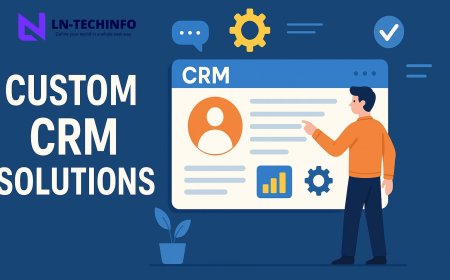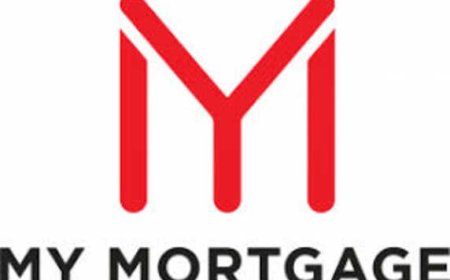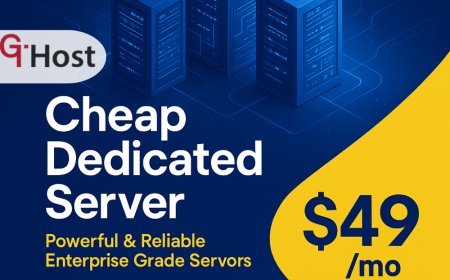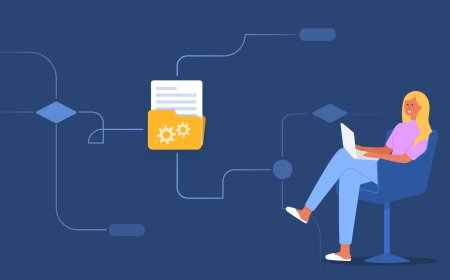How DevSecOps Ensures Continuous Security and Compliance in Cloud Environments Today
See how DevSecOps ensures continuous security and compliance in cloud environments by embedding security early, automating checks, and reducing risks.

As cloud computing becomes the foundation of how modern businesses operate, security and compliance have taken center stage. With organizations pushing code changes more frequently and deploying applications at high speed, the traditional security approaches simply cant keep up. Thats where DevSecOps comes in.
DevSecOps, which stands for Development, Security, and Operations, blends security into every stage of the software development and deployment process. This method not only reduces risks but also ensures that businesses stay compliant with the growing list of industry regulations. It transforms security from a bottleneck into a continuous and automated part of the workflow.
In this blog, we will explore how DevSecOps ensures continuous security and compliance in cloud environments today, why its essential, and how organizations can start implementing it.
Understanding DevSecOps
What is DevSecOps?
DevSecOps is the practice of integrating security directly into DevOps workflows. Instead of security being handled at the end of development or by a separate team, DevSecOps makes it everyones responsibilitydevelopers, operations, and security professionals work together from the start.
This approach encourages the use of automated tools that scan code, check cloud configurations, and monitor systems for vulnerabilities. The goal is to identify and fix issues early, continuously, and efficiently.
Why Traditional Security Doesnt Work in the Cloud
In traditional software development, security checks usually happen late in the process. This worked when software updates happened every few months. But today, with continuous integration and deployment, changes happen daily or even hourly.
Cloud environments are dynamic, constantly scaling and evolving. Applying old-school security in such fast-paced settings causes delays and creates gaps that hackers can exploit. DevSecOps fixes this by embedding security into every stage of development, deployment, and operations.
The Role of DevSecOps in Cloud Environments
Speed and Flexibility of Cloud Services
Cloud platforms like AWS, Azure, and Google Cloud allow businesses to scale quickly and deploy applications globally. While this flexibility is a big advantage, it also creates new attack surfacesmisconfigured storage, exposed APIs, or outdated dependencies can become vulnerabilities.
DevSecOps introduces real-time monitoring and automated responses that align perfectly with the clouds pace. Security doesnt slow down developmentit moves alongside it.
Shared Responsibility Model
Cloud providers offer infrastructure security, but users are responsible for securing their applications and data. DevSecOps supports this shared responsibility model by ensuring that developers follow secure coding practices and operations teams configure cloud resources safely.
Everyone has a role, and with DevSecOps, each role is aligned with clear, secure processes.
How DevSecOps Enables Continuous Security
Shift Left Approach
The shift left approach in DevSecOps means pushing security to the earliest stages of development. Code is scanned for vulnerabilities as soon as its written. This allows teams to catch and fix issues before they move down the pipeline.
Early detection saves time and reduces the cost of fixing bugs. It also helps avoid last-minute panic before deployment.
Automated Security Testing
DevSecOps relies on automation. Tools are used to automatically scan code, configurations, and infrastructure for weaknesses. Static Application Security Testing (SAST) and Dynamic Application Security Testing (DAST) are common methods.
These automated tests can be built into CI/CD pipelines, ensuring that every change is tested before it reaches production.
Real-Time Threat Detection
DevSecOps integrates with tools that offer real-time alerts when something suspicious is detected. Whether its unusual login activity, unauthorized access to a cloud resource, or a new vulnerability in a package you useyour system is watching and ready to respond.
Continuous Monitoring and Logging
Logs are essential in detecting problems, investigating incidents, and maintaining visibility. DevSecOps emphasizes continuous logging of user activities, system behavior, and changes in configurations.
This helps in identifying potential threats quickly and provides a reliable audit trail for investigations and reviews.
How DevSecOps Helps Achieve Compliance
Understanding Compliance Needs in the Cloud
Depending on the industry, businesses must comply with rules like HIPAA, GDPR, PCI-DSS, or SOC 2. These regulations are meant to protect sensitive data and maintain customer trust.
In a cloud environment, ensuring compliance becomes harder because of distributed systems, shared infrastructures, and frequent updates.
Compliance as Code
DevSecOps allows you to define compliance requirements as code. That means your system can automatically check whether your setup meets the required standards.
For example, you can create rules that enforce encryption, password policies, or access controls. If someone tries to change something in a way that violates compliance, the system stops it or sends an alert.
Faster and Easier Audits
Continuous compliance means you're always audit-ready. Since DevSecOps automates checks and maintains logs, pulling reports for an auditor becomes much easier. You dont have to scramble to prove complianceits already documented and available in real time.
Reduced Human Error
Many compliance issues stem from human mistakessomeone forgetting to encrypt data or giving the wrong permissions to a user. DevSecOps automates these processes, reducing the chance of human error and keeping your cloud environment in line with the rules.
Read more:How DevSecOps Strengthens Cloud Security and Ensures Compliance in Modern Cloud Environments
Tools Commonly Used in DevSecOps for Cloud Security
Jenkins
Used for automating builds and deployments. It integrates with security tools to scan code during development.
Terraform
Helps manage Infrastructure as Code. It ensures consistent configurations across environments, reducing misconfiguration risks.
Aqua Security
Secures containerized applications, ensuring that cloud-native systems remain protected at runtime.
AWS Config / Azure Policy
These native tools help monitor compliance by checking if your cloud resources follow security rules and policies.
Snyk
Identifies known vulnerabilities in open-source libraries, Docker images, and codebases.
Implementing DevSecOps in Your Cloud Strategy
Start Small
You dont need to overhaul your entire system overnight. Start by adding automated code scanning into your CI/CD pipeline. As your team becomes comfortable, expand your DevSecOps practices into other areas like container security or infrastructure scanning.
Educate Your Team
DevSecOps is as much about people as it is about tools. Provide training to developers, security engineers, and operations teams so they understand how to collaborate and use security tools effectively.
Build a Culture of Security
Security shouldnt be seen as a blocker. Make it a normal part of everyones job. Encourage open discussions about risks, incidents, and how to improve. When everyone cares about security, the organization becomes stronger.
Automate Where Possible
Automation reduces human error and speeds up processes. From scanning code to testing configurations and managing compliance, the more you can automate, the more secure and efficient your operations will be.
Real-World Benefits of DevSecOps
Fewer Breaches and Vulnerabilities
By catching issues early and monitoring continuously, companies see a drop in security incidents. Applications are more secure, and customers feel safer using your services.
Faster Time to Market
Since security is built into the process, theres no need for delays or security reviews at the end. Features and updates are released faster and with confidence.
Improved Compliance Posture
With regular checks and better documentation, companies stay ahead of audits and reduce the risk of penalties.
Greater Team Collaboration
DevSecOps breaks down silos between development, operations, and security. Teams work together, share responsibility, and deliver better results.
Conclusion
In today's cloud-driven world, where updates are frequent and systems are always on, traditional security practices just dont cut it anymore. DevSecOps offers a smarter way forward. By blending security into every step of development and operations, it provides the continuous protection and compliance that modern businesses need. It reduces human error, strengthens teamwork, and speeds up the delivery of secure applications. Organizations that embrace DevSecOps position themselves not only to meet todays security challenges but also to thrive in the future. If you're looking to build a scalable digital product or partner with an app development company, adopting DevSecOps practices can ensure that what you build is both safe and ready to meet the highest industry standards.
FAQs
What does DevSecOps mean in simple terms?
DevSecOps stands for Development, Security, and Operations. It means integrating security into every step of building and running software, rather than treating it as a final step.
Can DevSecOps be used with any cloud platform?
Yes, DevSecOps works with all major cloud platforms like AWS, Google Cloud, and Microsoft Azure. The tools and practices can be customized to suit the specific platform you use.
Is DevSecOps only useful for large organizations?
No, businesses of all sizes can benefit from DevSecOps. Even small startups can improve their security posture and reduce risks by using the right tools and practices.
How does DevSecOps help with compliance?
DevSecOps automates compliance checks and maintains logs, making it easier to meet industry regulations and be ready for audits at any time.
Do I need a special team to implement DevSecOps?
Not necessarily. While having dedicated security professionals helps, DevSecOps is about collaboration. Developers, operations, and security teams work together, often using tools that are easy to integrate into existing workflows.
























































